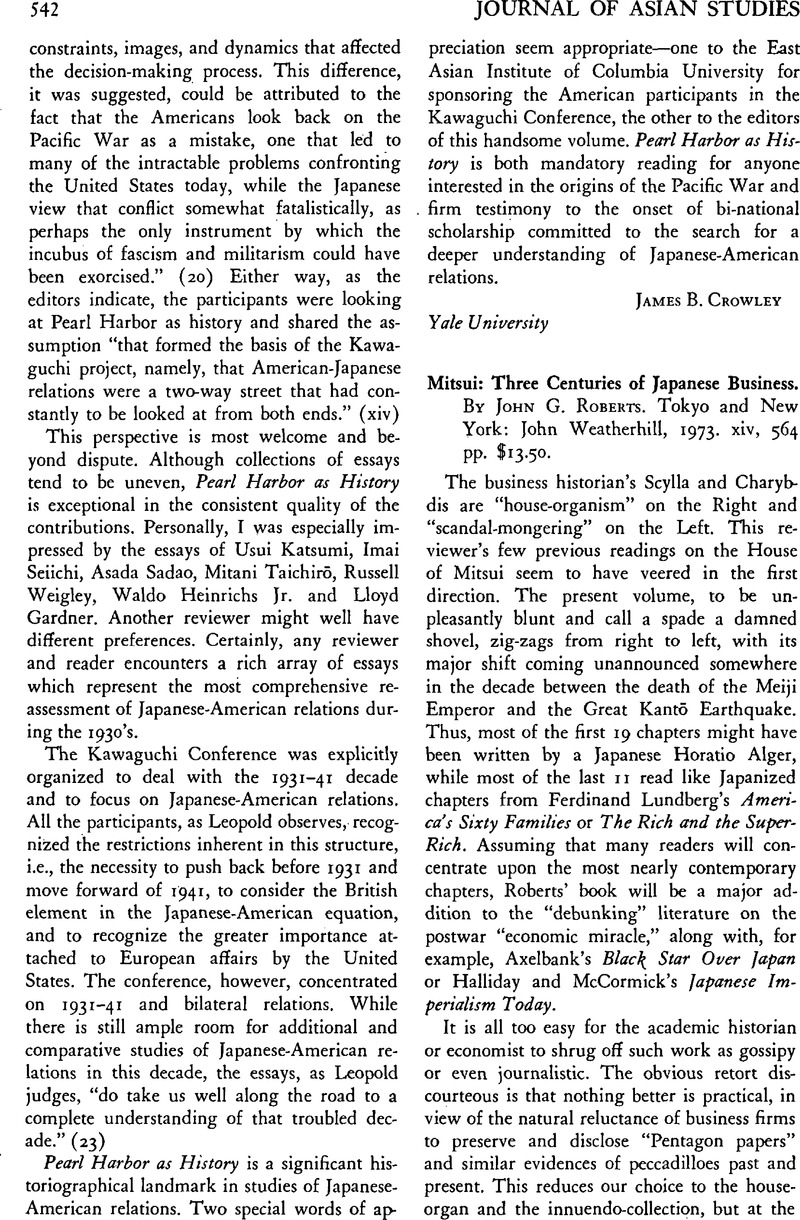No CrossRef data available.
Published online by Cambridge University Press: 23 March 2011

1 These particular charges are (in running-quotation form):
p. 343: “The zaibatsu leaders might have been able to obstruct Tojo's appointment or sabotage his cabinet by noncooperation, but apparently made no attempt to do so. One reason for their timidity was the fact that Tojo had assembled voluminous dossiers about the unsavory collusion between business interests and military officers, which he used to blackmail both groups as a means of forcing evildoers to tread die path of national righteousness. Through the years Tojo had seen the zaibatsu enriching themselves at the sacrifice of his men, most of whom came from impoverished rural families, and he felt no compunction about using his power.”
p. 383: “Colonel Kramer at the Economic and Scientific Section [of SCAP] is reported to have said: ‘The Mitsui family shall not live better than these people,’ as he pointed out the window at the shabby passers-by in the war-scarred streets below. The uncompromising morality of his position must be questioned, however. For by some legerdemain,Gerli International, in which he was a partner, acquired 850,000 shares in Katakura Industries, a major silk-textile firm dominated by Mitsui Bussan. Whether he obtained this stock by legitimate means or [otherwise], some conflict of interest is evident.
“Such acquisitions were not rare. Some occupation officials used their authority to extort securities, real estate, and works of art from Japanese owners, or went into ‘partnership’ with businessmen seeking privileges. Quite a few of these carpetbaggers, especially Japanese-speaking American lawyers, became landed gentry by such means and still live in Japan as billionaires, if their wealth is counted in yen.”